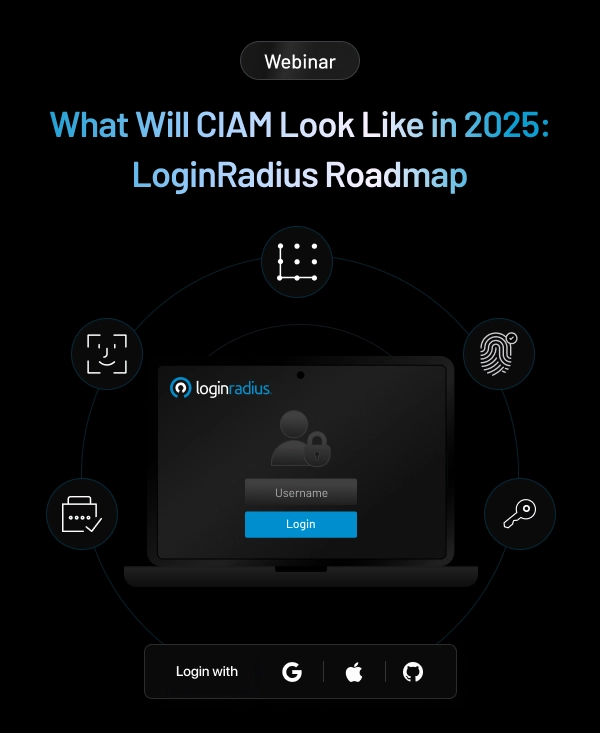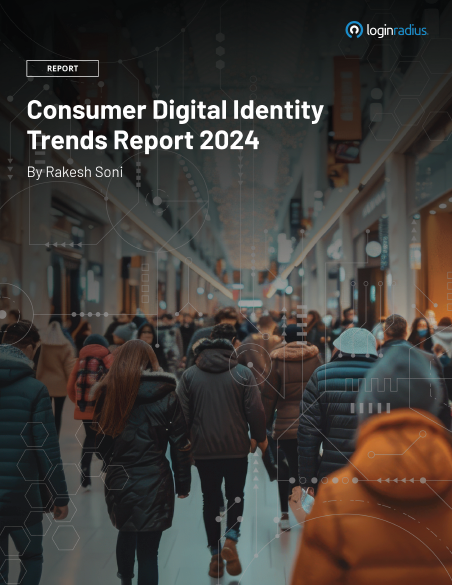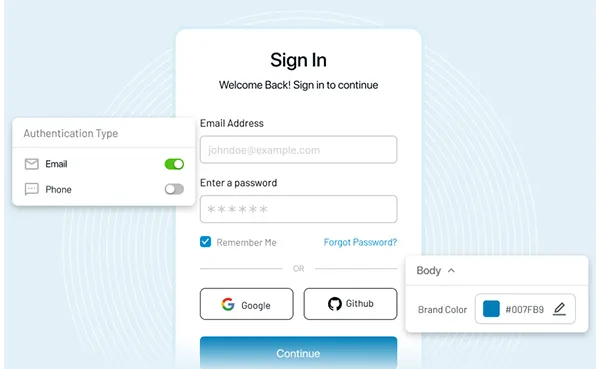A crucial component of any SaaS organization is ensuring that their consumers can successfully leverage the tools and systems they provide. A vital part of this is an efficient Consumer Support system.
At LoginRadius, we have spent years refining our support processes and procedures. We have learned a lot about balancing efficiency, consumer success, and consumer satisfaction to unlock the true potential of our platform for our consumers.
Before diving into the various systems and services that make up a Consumer Support system, it is essential to understand a few things.
-
What does support mean for your organization?
Support is different for every organization. Make sure you have spent time with internal stakeholders to understand what success means to your organization and then drive your consumer support based on the understanding.
-
Who do you support?
Understanding the types of consumers that will engage with your support team allows you to tailor your systems, teams, and processes to these individuals. Try setting up consumer profiles for all key stakeholders who may interact with your Consumer Support team and refine them over time.
Once you have defined the above two questions for your organization, it is much easier to flesh out how you will structure your Consumer Support System and start defining your Support Structure.
What Does an Ideal Consumer Support Team Look Like
An efficient Consumer Support team is more than just the front line support personnel interacting with your consumers.
Supporting consumers must be an organization-wide initiative. All teams bring unique systems, skill sets, and perspectives to your Consumer Support processes. This makes it essential to involve other teams early and consistently when planning how you will structure your support processes.
Understanding where other teams may fit into your support structure allows you to tailor your workflows and engagement based on a mutual understanding of Consumer Success and Support.
At LoginRadius, we have always maintained a "Consumer First" approach and treat consumers as our priority.
Various teams support our direct Consumer Support team through direct and indirect support:
Product Management, Product/R&D, DevOps
These teams offer direct assistance to our Support Engineers by bringing to bear their extensive product knowledge when troubleshooting complex consumer questions.
Whether this means working with the team to develop architectural or technical solutions, troubleshooting bugs, or recommending systems or workflows that can solve consumer issues, they bring a wealth of technical knowledge and skills to bear.
These teams also play an active role in the triage process when priority issues are logged; frequently, they have access and insight into these issues, making a meaningful difference when classifying problems and escalating priority or production issues.
Marketing and content
An under-appreciated team in the context of Consumer Support, “content” plays a vital role in assisting consumers.
By generating relevant content, whether directly related to your platform or related to supporting technologies or systems, they provide extensions to your direct knowledge base or documentation, which can help mitigate or facilitate understanding.
Support teams engaging closely with these teams can help drive relevant content that provides value to consumers and indirectly influences support by proactively providing relevant content to your consumers.
Consumer success and revenue
Consumer support is often a very transactional process with minimal opportunities to build a relationship with your consumers. It is essential to include teams that specialize in creating these relationships directly as part of your support processes.
This means providing active feedback and reports on the Consumer Support interactions so that these relationship-focused teams can ensure that consumers are satisfied with the received support and all deficiencies are quickly resolved.
Over time, this allows for a feedback loop in which consumers are comfortable in proactively providing feedback as they know that their experience will improve by doing so.
Common Factors of a Good Consumer Support Service
Involving other teams is essential, but equally important is having the right people on your team. Consumer Support is not for everyone. Having the right individual interacting with your consumers is important to ensure efficient support that drives product usage and consumer satisfaction.
These individuals may vary from organization to organization, based on their definition of support and the types of consumers they support. Still, there are a few unifying factors that make a huge difference:
- Empathy: It is easy to forget complexities and lose touch with the learning experience once you have become familiar with a product. Being able to approach and understand your consumers' perspective is important to understanding and interpreting their needs.
- Flexibility: Consumer may not always use the language they are familiar with, or their questions may not directly dictate their issues. Understanding and interpreting their needs intuitively reduces time to clarify and understand what they want.
- Consumer-centricity: A desire to ensure your consumers' success is crucial. This often means going above and beyond to engage, understand and facilitate consumers, and work as an internal advocate for your organization.
With the above components and understanding of both who you are supporting and what support means for your organization, you can build a support team that will enable your consumers.
This is often an organic process that may evolve as you engage with external and internal stakeholders. Measuring this via targetted metrics allows you to refine and revamp these processes based on informed decisions.
How to Measure Your Consumer Support Performance
When defining how to measure your support performance, there are three things to keep in mind:
1. What is important to measure?
Setting up key metrics allows you to strive for something; these may vary from industry to industry or organization to organization and should but tailored to your company and essential for your consumers.
At LoginRadius, we focus on accuracy, efficiency, and expeditiousness, with some of our key metrics being:
- First response time
- Resolution time
- One-touch response rate
- Consumer satisfaction
2. What are the industry standards for your vertical?
Understanding how your competitors measure support and the metrics they provide can help your organization understand where you sit with your metrics. While this should drive your metrics, it should also impact the metrics you track.
3. What legal or contractual requirements do you need to comply with?
There may be various regulatory requirements that come into play when defining your metrics and contractual metrics, such as Service-Level agreements(SLA) or other components of contracts that mandate specific metrics within your organization. Use these to define and track important metrics for your industry or organization.
5 Channels to Improve Your Consumer Support Service
Delivering support is essential, and SaaS support usually involves more than one of the following channels:
1. Email or Ticketing
Various options exist to support this channel. These range in scale from a simple support email address to robust support ticketing systems .
These often form one of the initial touchpoints for all issues and allow for consumers communication and longer-term investigations.
At LoginRadius, we leverage Zendesk as our email and ticketing solutions, but various services exist offering a range of scale to support all organization sizes:
- Zendesk
- Freshdesk
- Salesforce Service Cloud, etc.
2. Live chat
A live chat system is often the front line to your support engagement and can be a handy tool for consumers to get quick, efficient support.
These are often supplemented with automation levels to streamline the initial communication via service frameworks and bots.
Like Email ticketing systems, there are many options in this industry that can enable your teams, both small and large.
We leverage intercom to support our Live Chat for Customer at LoginRadius, but some other options are:
- Intercom
- Zendesk Chat
- Olark
- Drift, etc.
3. Phone Support
Phone support usually comes in two formats, a scheduled call or direct call lines. These allow for rapid expedition of requests and reassure consumers that they have active engagement and acknowledgment from your team. Most of the significant support services also support direct call support channels.
At LoginRadius, we leverage Dialpad both for scheduled support as well as priority phone channels.
- Dialpad
- Zendesk Talk
- Freshdesk Phone Channel, etc.
4. Community Support
Community support allows product evangelists outside of your organization to support your other direct channels.
By providing a forum or location where consumers can share knowledge or experiences, you can mitigate the amount of direct support your organization needs to facilitate.
Depending on your organization, these vary. With LoginRadius, we encourage our consumers to engage with each other both via Github and Stackoverflow.
Still, direct forums like the following are also suitable.
- Github
- Stack overflow
- Vanilla Forums
- vBulletin, etc.
5. Knowledge base/technical documentation
Providing detailed knowledgebases and documentation, which includes intuitive methods to find information that a consumer requires, is often more potent than all of your other support channels combined in reducing the total volume of support engagements. There are various services to support this, some directly integrated into Support service desks.
At LoginRadius, we chose to develop our own platform to service our documentation. This allows us to iterate continuously and improves our support documents and knowledge base.
Every support engagement is reviewed and analyzed. This analysis is fed back to our content team to improve or enhance our documentation to give the tools to find the information they need directly quickly.
How to Build an Exceptional Consumer Support Process
Now that you have selected the best tools to enable your team and your consumers, it is time to define your processes.
Having a well-defined set of processes and playbooks for your support team allows you to quickly onboard new team members, scale support engagement independent of team size, and easily understand and refine bottlenecks and action feedback.
At LoginRadius, we spend a significant amount of time early in our support team development to document and detail as many processes and procedures as possible.
These form the backbone of our support engagement and enable teams to provide the best, most efficient support possible by having clear channels of communication and touchpoints to cover the majority of consumer issues.
Beyond general processes to cover the various support communication channels you have in place(Email, Phone, Live Chat Etc), it is equally important to engineer your process with failure in mind.
Have defined process for situations like:
-
Triaging and escalations:** **This is one of the most critical processes defined at LoginRadius. It covers how to classify support priorities and specific granular steps to escalate issues to any tier or team within the organization.
Having clear communication lines is crucial when seconds of impact on a given problem can have an enormous financial or reputational impact on consumers.
-
Consumer objections or unhappiness:** **Not every support interaction goes as planned. While having the right team, channels, and processes goes a long way in mitigating this, and there will be times when a consumer may not be satisfied with the support they receive.
When these situations occur, both the Consumer Support and Relationship teams should try to figure out what went wrong and integrate future preventative measures.
Conclusion
It can be extremely fulfilling to create a consumer support team and see it evolve over time as you interact with consumers and refine your systems and processes.
They can help to define your organization and drive your organization's reputation in your industry.
Hopefully, the above insights into the LoginRadius support team and some of the things that have helped us to support our consumers enable you to drive efficiencies within your organization.
















